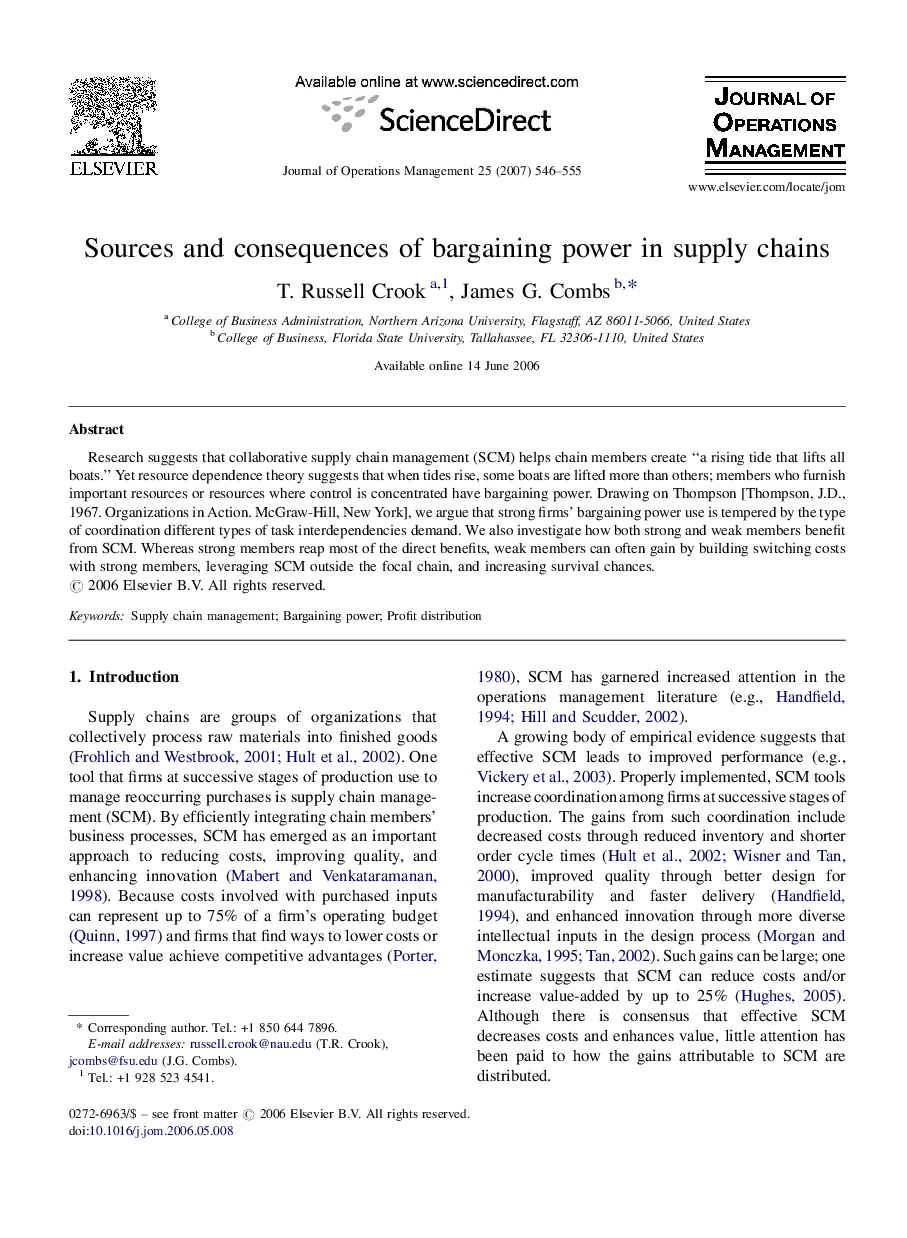| Article ID | Journal | Published Year | Pages | File Type |
|---|---|---|---|---|
| 1032310 | Journal of Operations Management | 2007 | 10 Pages |
Research suggests that collaborative supply chain management (SCM) helps chain members create “a rising tide that lifts all boats.” Yet resource dependence theory suggests that when tides rise, some boats are lifted more than others; members who furnish important resources or resources where control is concentrated have bargaining power. Drawing on Thompson [Thompson, J.D., 1967. Organizations in Action. McGraw-Hill, New York], we argue that strong firms’ bargaining power use is tempered by the type of coordination different types of task interdependencies demand. We also investigate how both strong and weak members benefit from SCM. Whereas strong members reap most of the direct benefits, weak members can often gain by building switching costs with strong members, leveraging SCM outside the focal chain, and increasing survival chances.
